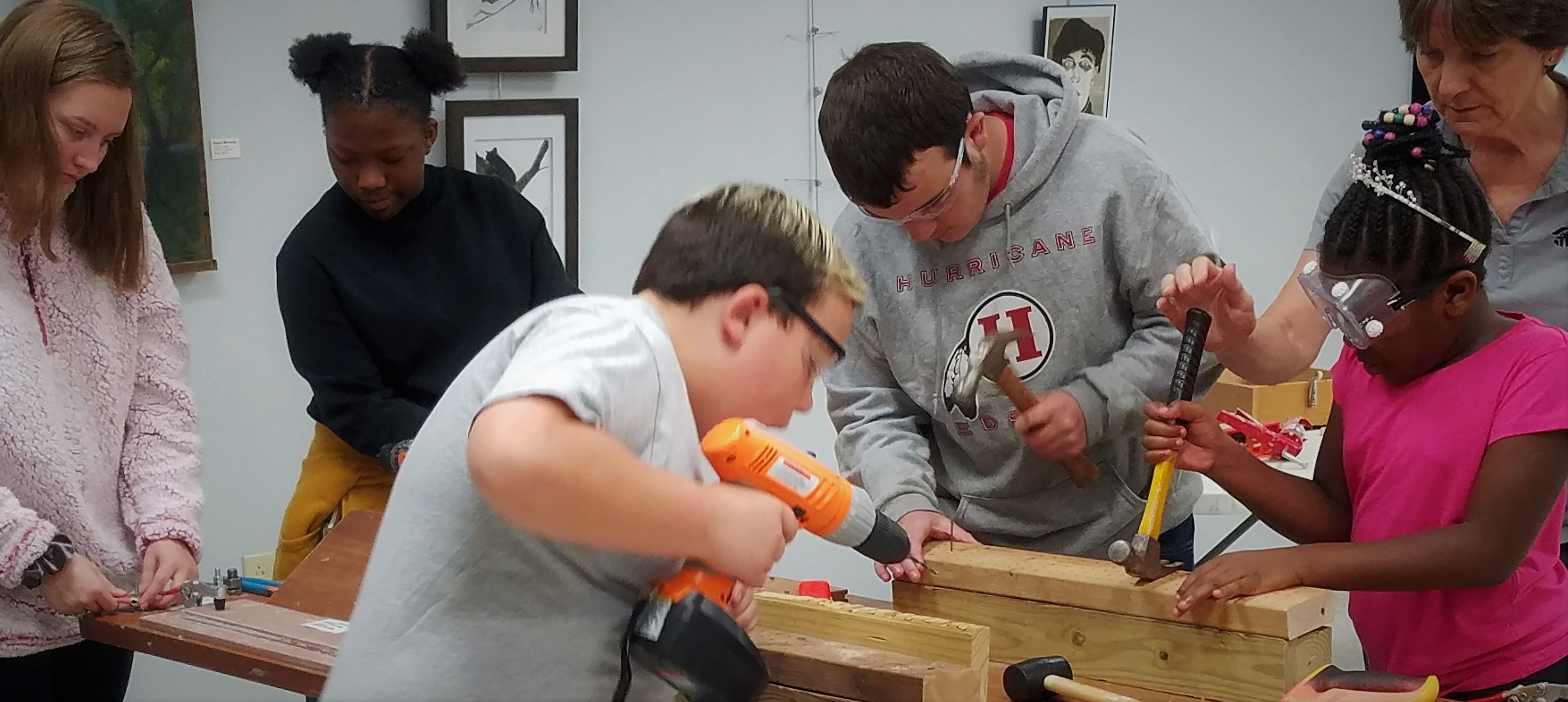Teaching Kids About Their Homes
Habitat for Humanity of Kanawha & Putnam’s new Future Homeowner Program is designed for children ages 10 – 16. This is a required part of the education for Habitat Homebuyers to help the children understand the responsibilities of owning a home, but Habitat also offer this to the community.
The program consists of a half-day hands-on workshop, and parents must attend with the child/children. There are a few activities in which parents will participate along with their child/children.
The 10 topics covered in the Future Homeowner Program include:
- Financial literacy
- Legal & insurance issues
- Neighborhood relations
- Fire safety & prevention
- Home & neighborhood safety
- Household plumbing
- Home electrical basics
- Energy efficiency
- Home maintenance
- Common household tools
The workshop begins with scenes that are set up with several household situations for the kids to observe and record what they see that is not right, safe, or could cost money. After having learning experiences during the half-day workshop, participants go back and walk through the scenes again and record what they now know is wrong.
There are hands-on activities, live demonstrations, videos, question and answer sessions, and lots of movement to keep everyone interested. We will offer this twice a year. Typically, these workshops are held on Saturdays from 9:00 a.m. until 3:00 PM.
Program Learning Objectives:
Money Matters: Upon completion, participants will be able to identify ways to help the family by reducing the costs of daily life and the importance of doing so.
Toolbox: Upon completion, participants will be able to identify and safely use basic tools within their toolbox.
Home Maintenance: Upon completion, participants will recognize the need for maintenance around their home and the importance of sharing the info with their parents.
Neighborhood Relations & Legal Issues: Upon completion, participants will be able to understand and relate how to be a respectful and responsible neighbor. Participants will be able to implement being a good neighbor and demonstrate skills to reduce conflict.
Fire Safety & Prevention: Upon completion, participants will be able to implement and express fire-safe habits within the home. Participants will be able to demonstrate and use a home fire extinguisher.
Home Electrical Basics: Upon completion, participants will be able to discuss and communicate knowledge of a basic home electrical system. Participants will be able to interpret electrical safety.
Home Safety/Security: Upon completion, participants will be able to interpret and identify potential threats to the safety and security of their homes.
Plumbing Basics: Upon completion, participants will be able to discuss how to avoid causing plumbing problems. Participants will be able to classify and identify plumbing leaks. Participants will be able to express how to avoid wasting water.
Energy Efficiency: Upon completion, participants will be able to convey activities demonstrating energy efficiency.

